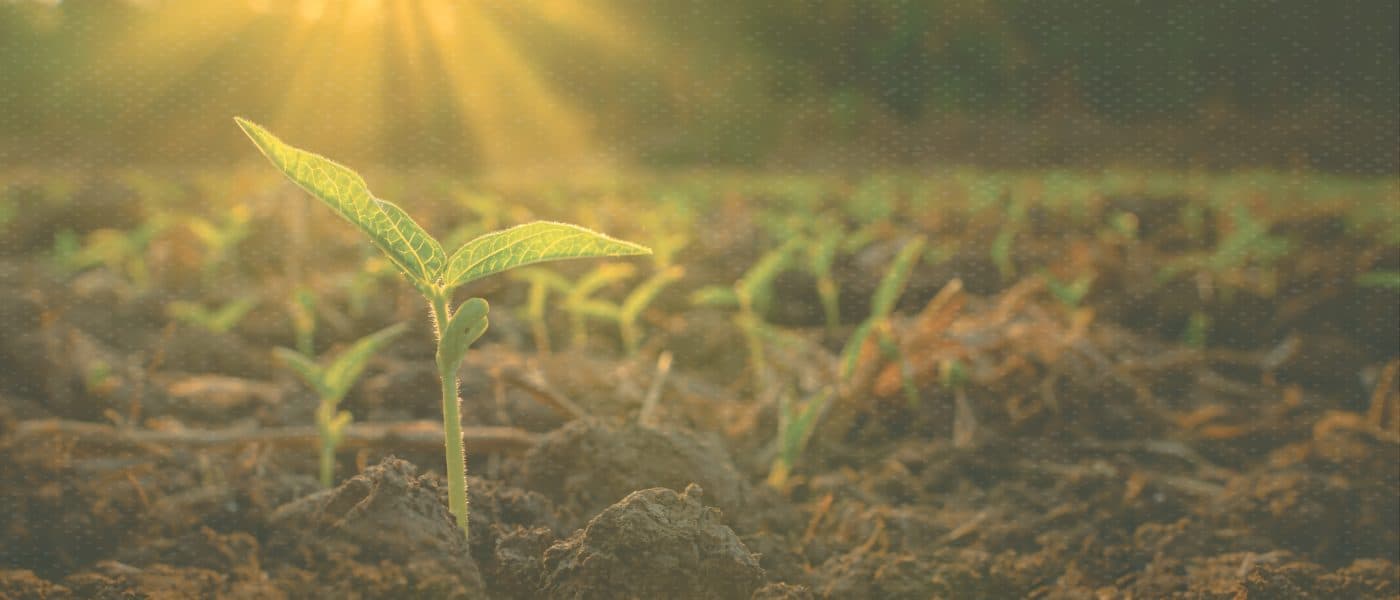Russ Kremer describing the life-threatening events that lead him to give up farming his hogs using industrial methods (from the movie Fresh).
For one herd of heritage breed swine, life on Russ Kremer’s family farm in Osage County, Missouri, is hog heaven. His hogs have the run of his pastoral 150 acres, rest in open, clean stalls, nosh on all-natural feed, and are never injected with antibiotics. Russ is co-founder and president of Ozark Mountain Pork Cooperative, which produces and sells all-natural pork. He is a strong advocate and a leader in the sustainable agriculture movement.
The Kremer family, like most in Osage County, Missouri, always kept a herd of hogs as a “mortgage lifter” during hard times. During the 1950s and ’60s, hog farming was a means to sustain the family, boost the rural economy and strengthen the community. Russ Kremer began raising hogs at the age of eight when his father, Wilfred, gave him a sow named Honeysuckle and her fifteen piglets to tend to. While Russ’s boyhood passion for hog-rearing has carried through to adulthood, it has not always come as naturally to Russ as it did when he was a boy.
In the early 1980s, a new, industrialized method of pig farming was taking hold in America. Farmers were keeping hundreds, even thousands of pigs in concentrated animal feeding operations, commonly referred to as CAFOs. Forcing the swine into tight quarters was touted as a way to prevent deaths from exposure to the elements, parasites, and fighting, which increased the scale and thus the profits of hog production.
“I got caught up, like a lot of people, in industrial farming out of college. It provided more income,” remembers Russ. As a young farmer and recent graduate from the University of Missouri, Russ was looking to increase his own pig production in the early ’80s. He took out a mortgage for a CAFO and stocked up on antibiotics to keep his pigs healthy in the confined environment, abandoning the natural methods of farming he practiced as a boy.
Despite the increases in pork production, Russ mentions the perpetual sickness his animals battled in the CAFO environment. “[It was] constant vigilance to keep them healthy. I care about my animals, and their sickness bothered me.”
In 1989, Russ was forced to consider the health of his herd in a whole new light. While driving one of his boars to breed, Russ was gored in the knee by the boar’s tusk. Two weeks later his leg swelled to double its size, but none of the six antibiotics doctors prescribed rid him of the life-threatening infection. Russ underwent surgery and an intravenous antibiotic to kill the bacteria in his bloodstream. When his medical report came back, it appeared that he was battling the same drug-resistant form of strep that plagued his hogs on the CAFO.
“I truly figured it out after contracting the bacteria…I realized that I was producing drug-resistant bacteria and putting it into our food system. I was distraught. I wanted to quit farming,” says Russ.
Instead Russ made a commitment to implementing sustainable methods on his farm. “I wanted to be an integral part in changing this,” he states. So, he made the tough personal decision to exterminate his herd and start over — this time farming the way he did as an eight-year-old boy, without the use of antibiotics, confinement or other industrial methods.
Russ, who holds a degree in animal husbandry, worked with Lincoln University to preserve the bloodlines of the heritage breeds he had collected. Using embryonic transfer, Russ removed the swine embryos from his contaminated pigs into clean sows. He built a new facility, and a safer, cleaner environment for the hogs. “I set a strategic course for myself, looking at all the things I had done wrong, and all the things I could do right. In the first year alone I saved $16,000-$18,000 on vet and drug bills.”
According to Russ, “transitioning to a more sustainable type of farming makes it more enjoyable. Before [farming] was very stressful. It’s easier to be around healthy, contented animals. People often say that raising livestock sustainably is more labor-intensive, but that is what makes it more enjoyable. There is less pressure and it is more joyous.”
Russ is a true believer in the benefits of sustainable agriculture and has advocated and educated others to make the transition. In 2001, he and thirty-three fellow family farmers developed the Ozark Mountain Pork Cooperative and Heritage Acres label.
The farmers Russ recruited to join Ozark Mountain, mainly through his presidency at the Missouri Farmers Union from 1999-2009, made a commitment to phase out antibiotics in their herds and to adopt sustainable methods of production. “At Ozark Mountain we were all caught up in [industrial farming], which is the reason we all came together. We shared one common problem and vision — we all had a passion for pig farming. We had no hope for the future commodity of agriculture. We pooled our resources and pulled together collectively…to produce food with integrity.”
The co-op served many educational and training purposes for the farmers transitioning out of industrial production. “Within the co-op structure we share ideas and we all want to succeed. We are transparent about new farming secrets and techniques. This openness lent to the success of the co-op.”
But, Russ and the other pork producers still felt resistance from farmers who wanted to raise their hogs the way they were accustomed.
“The naysayers would come to the meetings and put up a fuss. I remember being in my office all night long fretting about the response, and then I would get a call that someone was more convinced after the meeting that we were doing the right thing. The movement got stronger,” Russ recalls.
Today there are fifty-two farmers producing pork for Ozark Mountain at a premium price. Russ attests that creating a personal relationship with the consumer has been vital to Ozark Mountain’s continued success.
Just as he did in the early ’80s, Russ explains, “[industrial] farmers need a profit center. They sign up with an integrator and then there is no opportunity for anything else. Industrial farmers do not build relationships with their consumer. They do not realize how important food and customers are.”
Russ’s work has garnered him national recognition as a leader in the sustainable agriculture movement. Filmmaker Ana Sofia Joanes featured Russ in her 2009 documentary film Fresh, which celebrates the American farmers, thinkers, and business people who are reinventing our food system.
“It was an honor to be featured in Fresh,” says Russ. “When people ask about my style of farming and my beliefs, I share them — I am an evangelist [for sustainable farming]. I am a farmer that does more than advocates or protests. I am doing something to show the better way. Sustainability is an economic and social model of hope.”
The best hope that we have for making this model work lies with America’s family farmers. “We must change as we work toward ending monopolistic agriculture,” says Russ. Abandoning industrial agriculture and transitioning towards more sustainable farming can recreate a system in which the majority of labor, management, and capital are provided by the family unit to support and sustain the community — just as it was back when hog farming was a “mortgage lifter” in Osage County, Missouri.
What exactly is a family farm? How does it differ from a factory farm? Click here for our answer.



